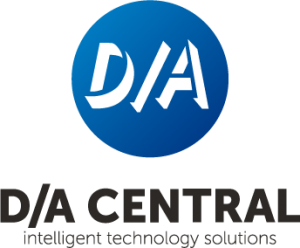As we approach the two-year anniversary of the COVID-19 pandemic, we can see clear signs of changes throughout our society. From cancelling important plans, to changing the way our businesses operate, to keeping ourselves and those around us healthy, it is safe to say we have all had to practice some patience and flexibility along the way.
These qualities may be especially useful as we face new challenges related to shortages across the global supply chain. Virtually all industries are feeling the effects of this in one way or another, including the security industry. Security systems integrators have had to implement new strategies and ways of working to continue getting the job done for clients.
For security professionals with projects on the horizon, here are some helpful tips on how to navigate the supply chain crunch.
Communication is Key
Managing expectations is one of the biggest factors when it comes to scheduling a project. When ordering materials, wait times can be extremely lengthy and availability of products can be inconsistent from one day to the next due to current supply chain problems. It’s important to let your integrator know as soon as possible about a new project. Previously it may have been possible to initiate a new project and order products with only a few months notice, projects now require longer lead time. Communicating clearly about needs and priorities ensures fewer road bumps.
Plan, Prepare and be Proactive
These three Ps are key to working around unexpected supply chain disruptions. Think around the corner wherever possible about what’s coming up to avoid hitting the panic button. Understand that timelines can be loose and it is better to receive shipments too early than too late. Honorable mention to the Ps – Patience! Rest assured that things are moving forward, even if not on the original timeline.
Be Ready to Pay for Products Sooner
For projects in the future that need to be done by a certain date, the best way to get the parts in time is to issue the purchase order as soon as possible. To stay on track, integrators will order the parts and bill for them immediately. Payment is what kick starts the process and is especially important for big projects in which the order date could be bumped up to a year sooner. Additionally, prices are contingent and may increase over time. This might create some adjustment in terms of budget planning but paying upfront is an instrumental first step to getting in line to deploy that new access control or surveillance system.
Be Flexible
Most important of all is flexibility. For example, security systems integrators may need to mobilize on multiple occasions to finish the project depending on which dates certain products are available. Another solution is substituting a new part for a legacy part that may be available sooner. In some cases, the legacy part can stand in for the new part until it is received, at which point they can be swapped out. Getting creative about finding solutions allows for an agile response to new challenges.
Overall, each industry has been uniquely impacted by supply chain deficiencies and security is no different. By utilizing these best practices security professionals can navigate through these unprecedented times and deliver best-in-class service









Leave a Reply
Want to join the discussion?Feel free to contribute!